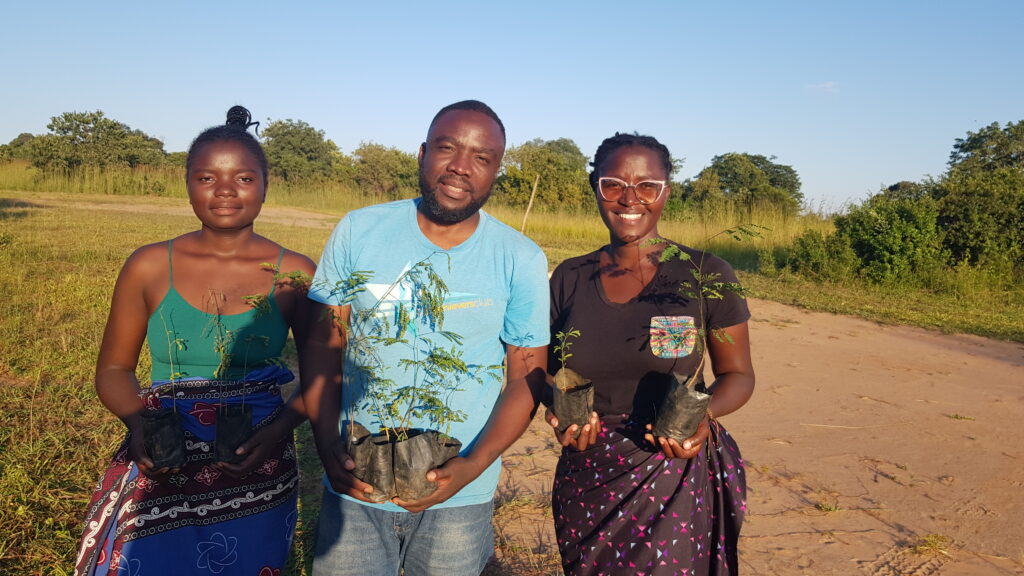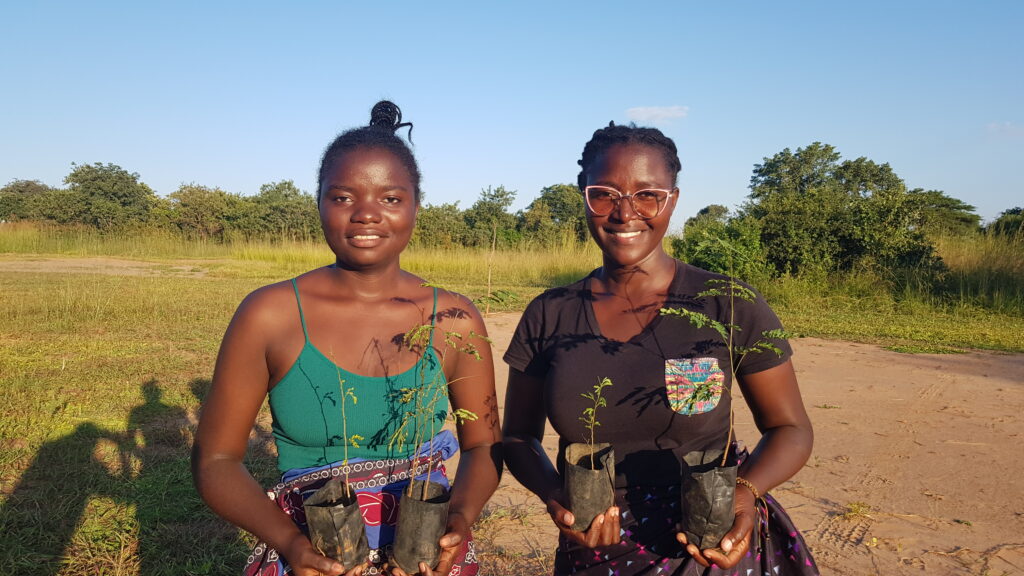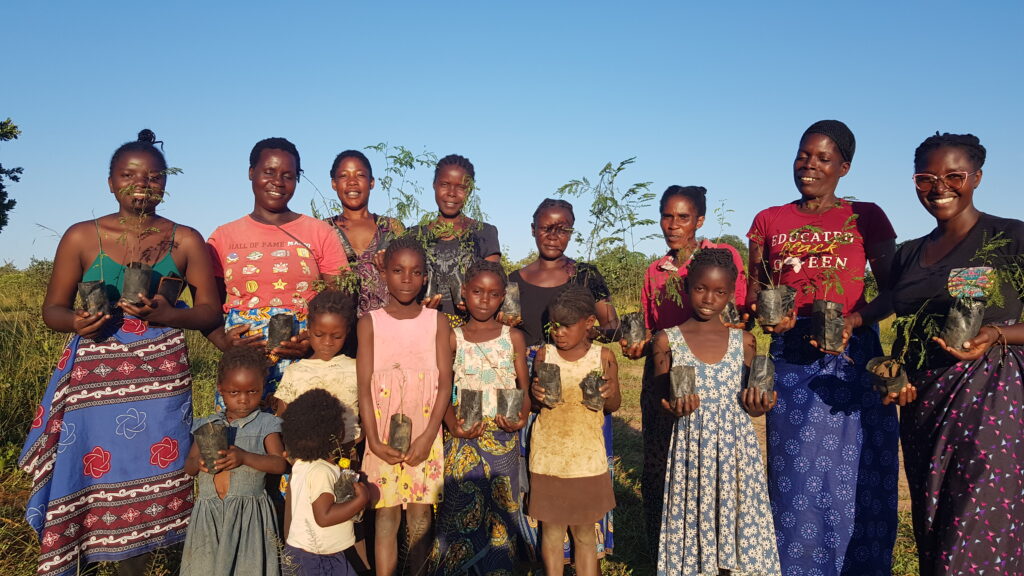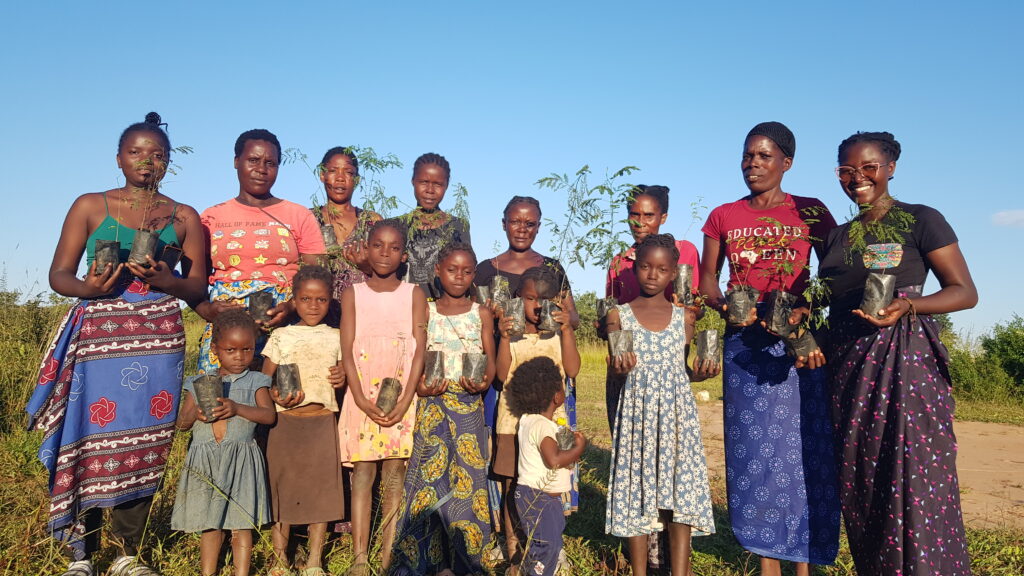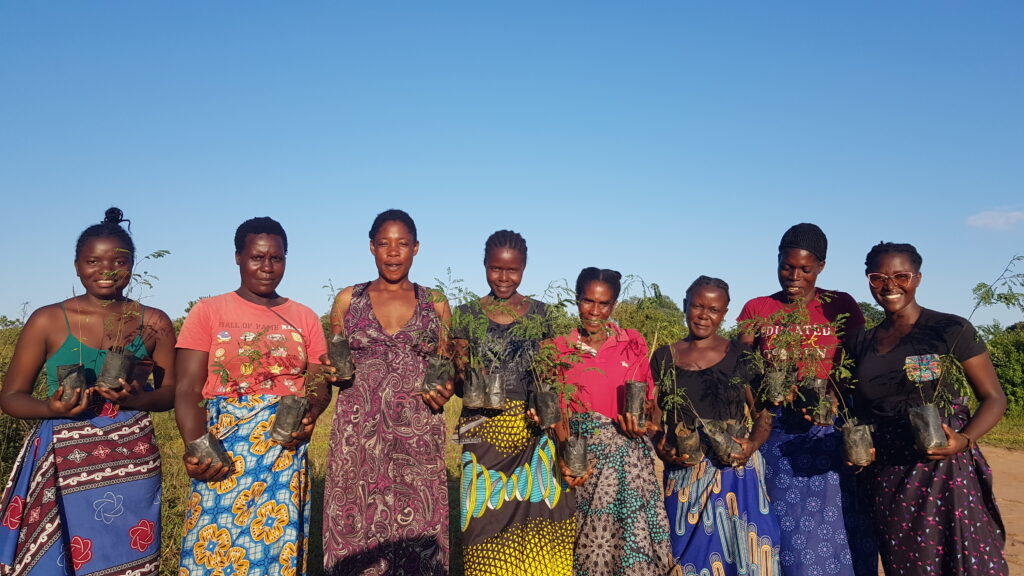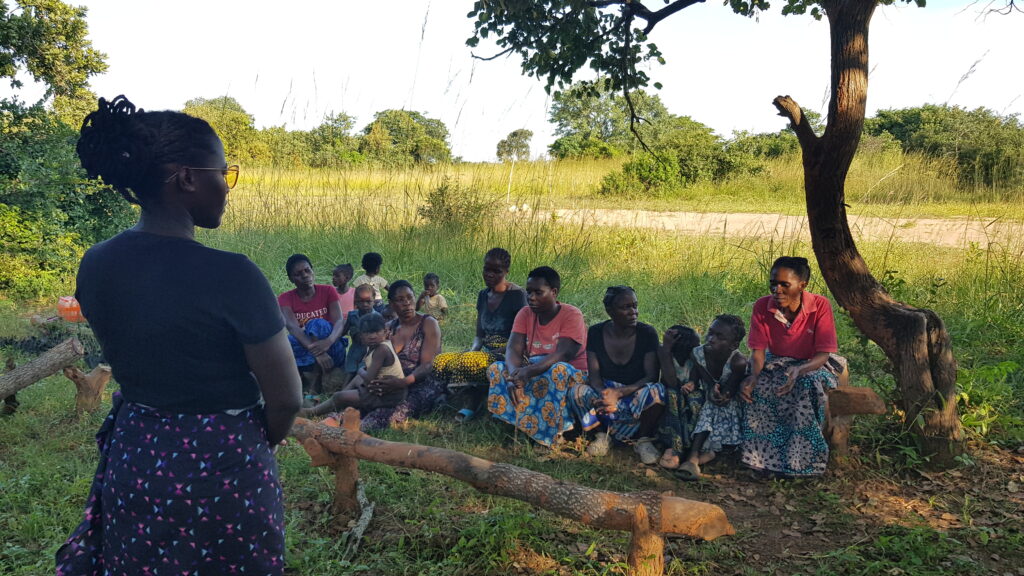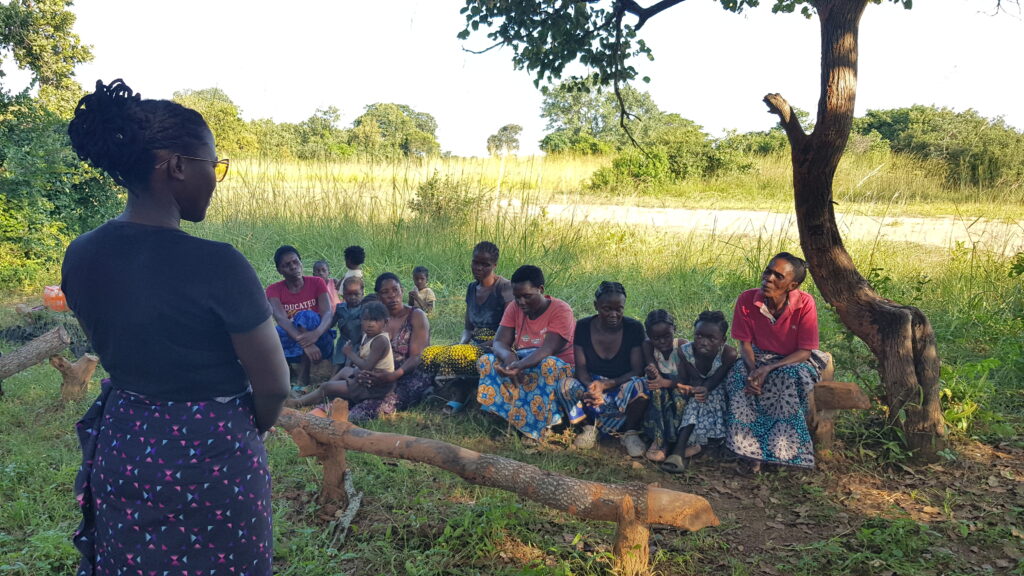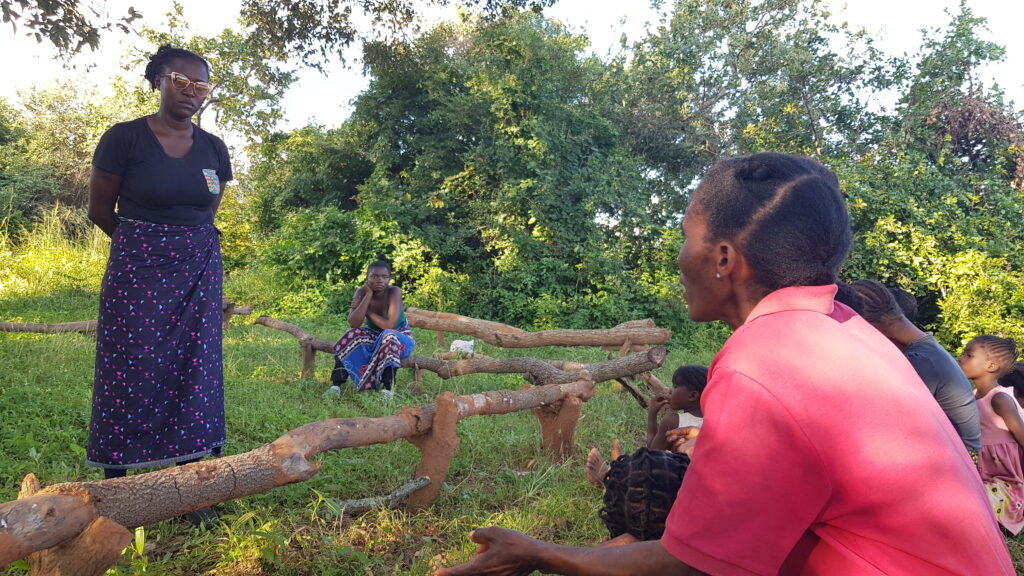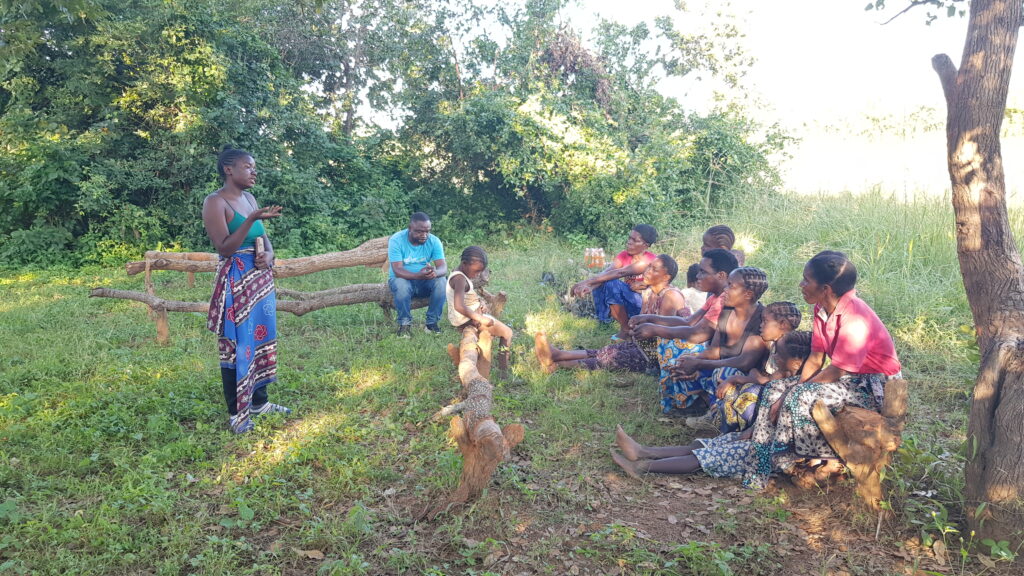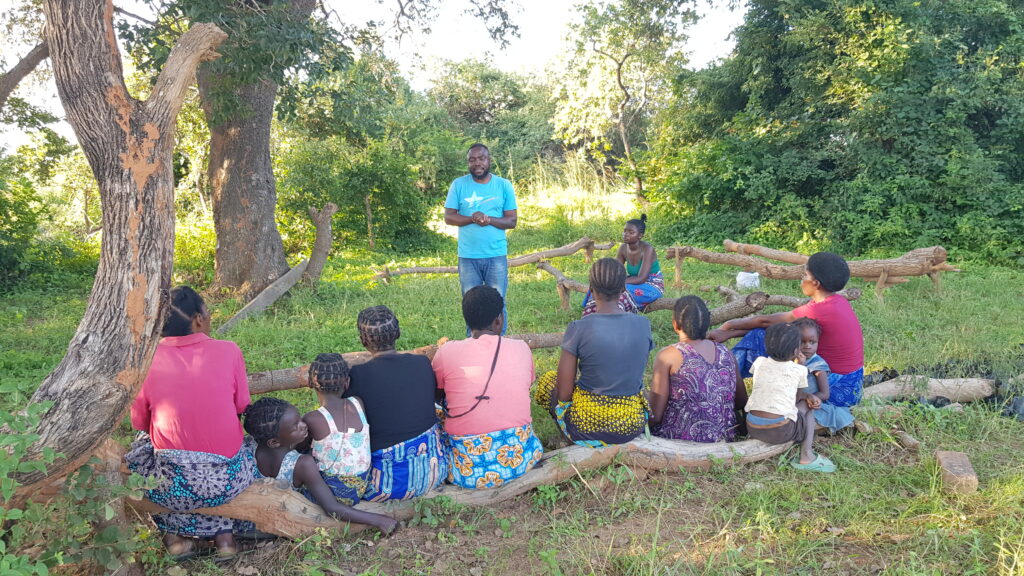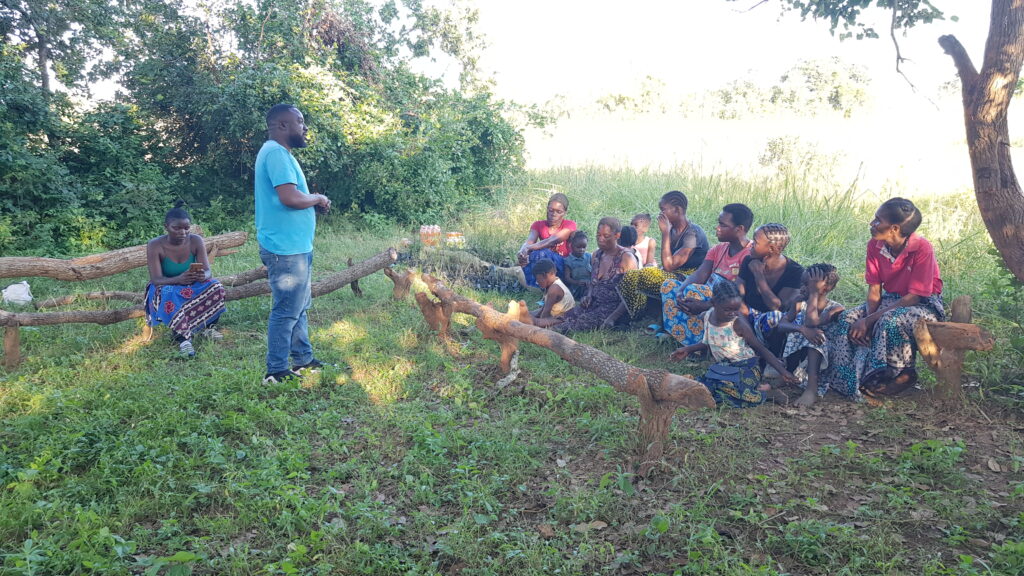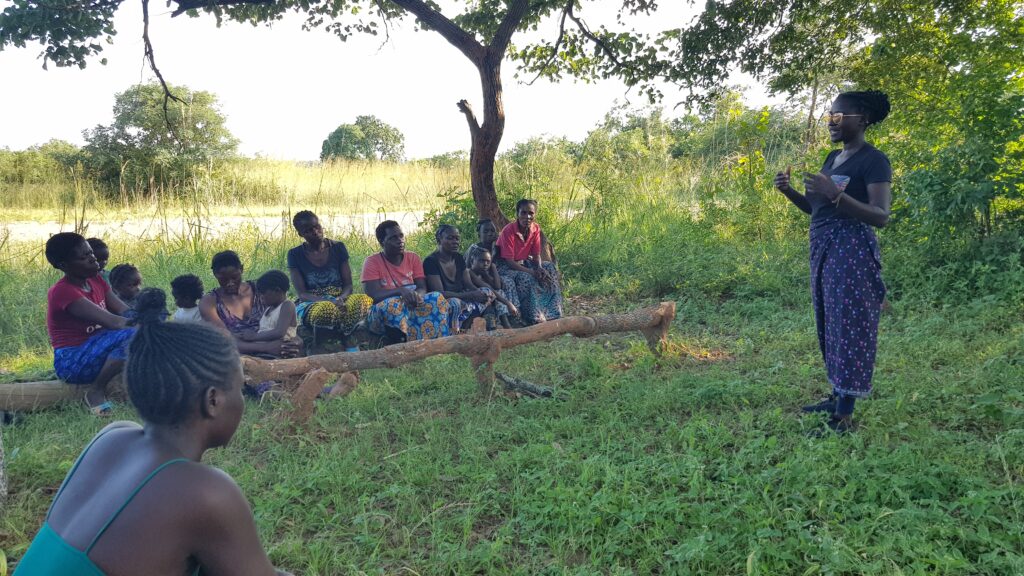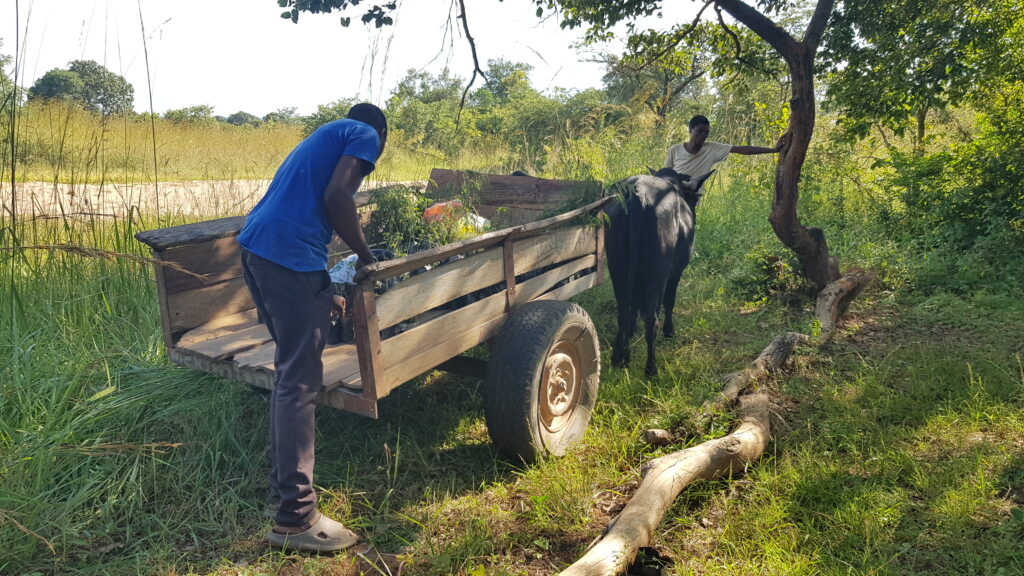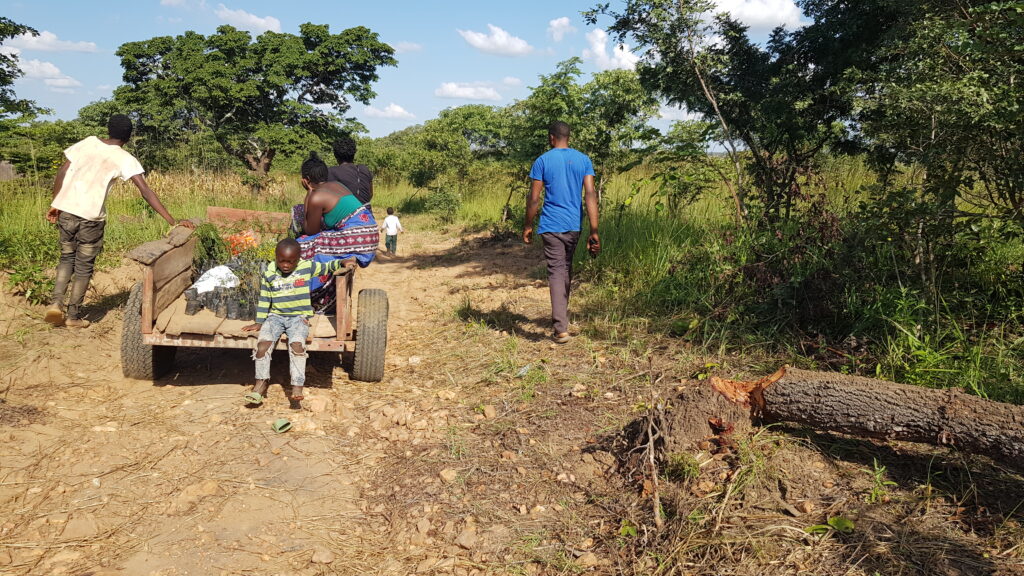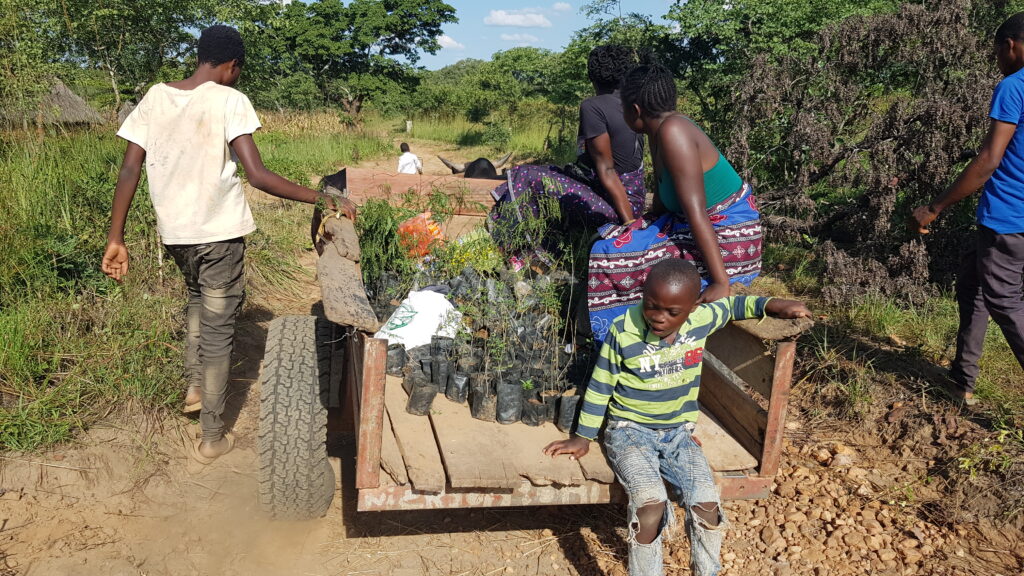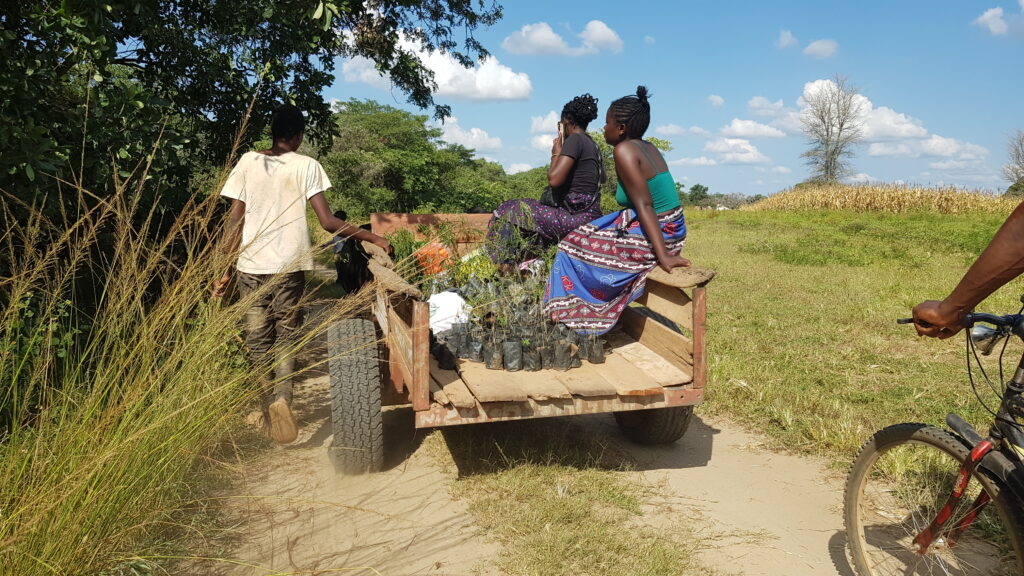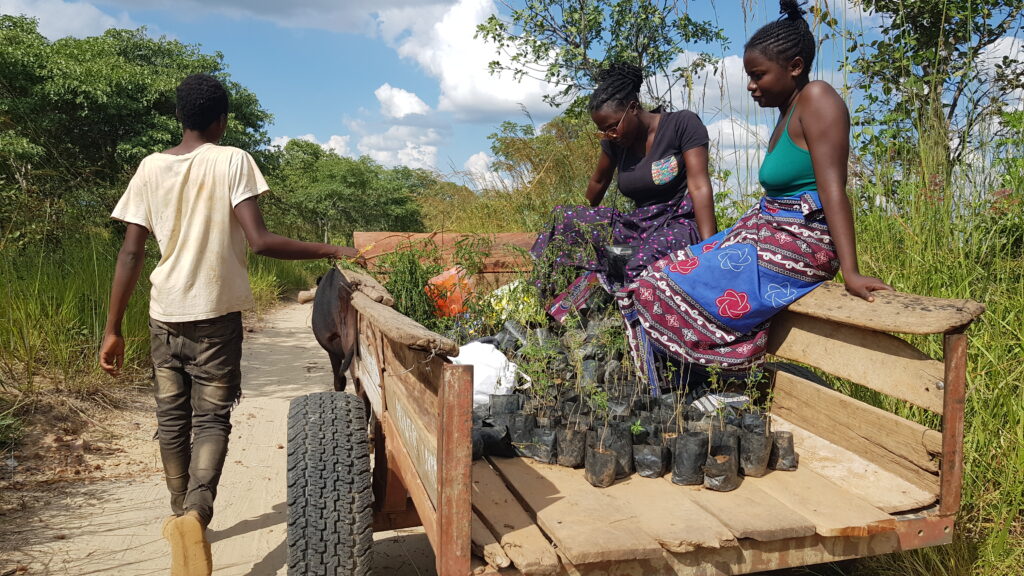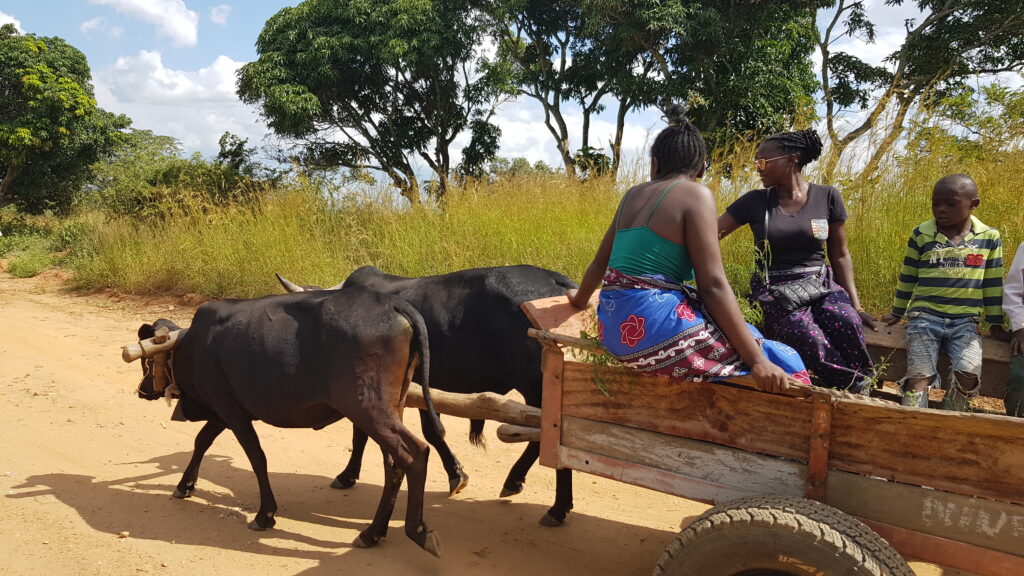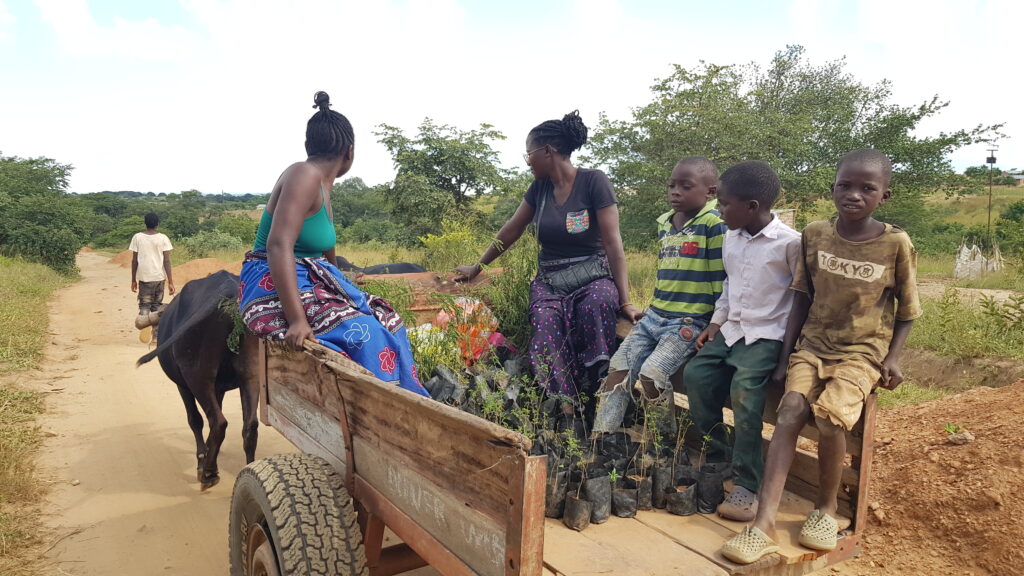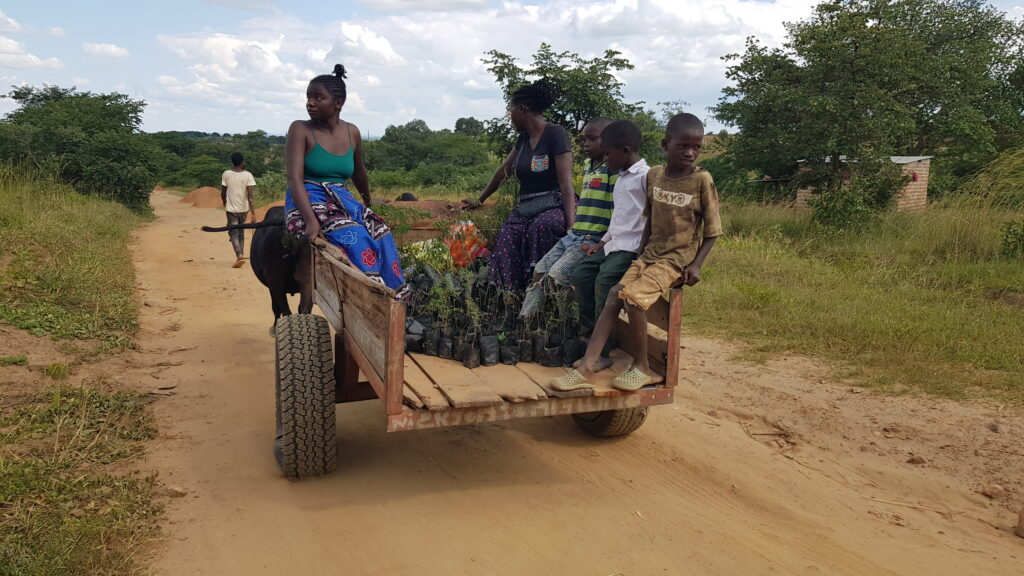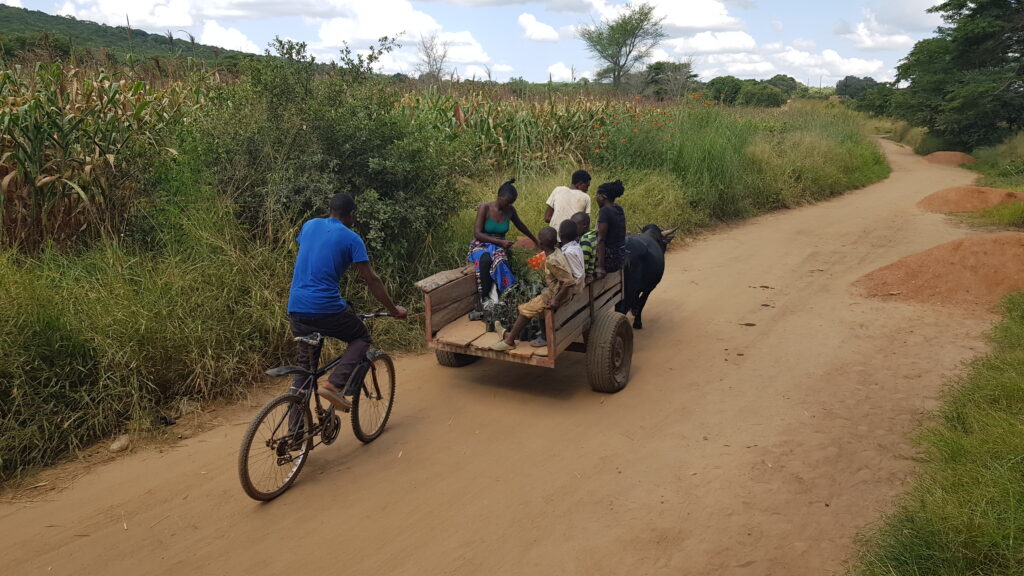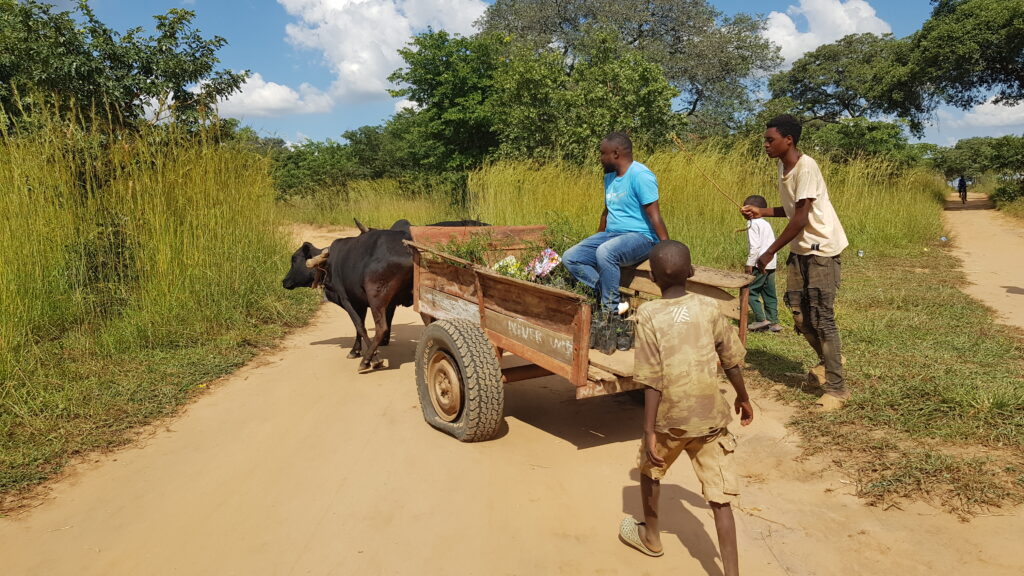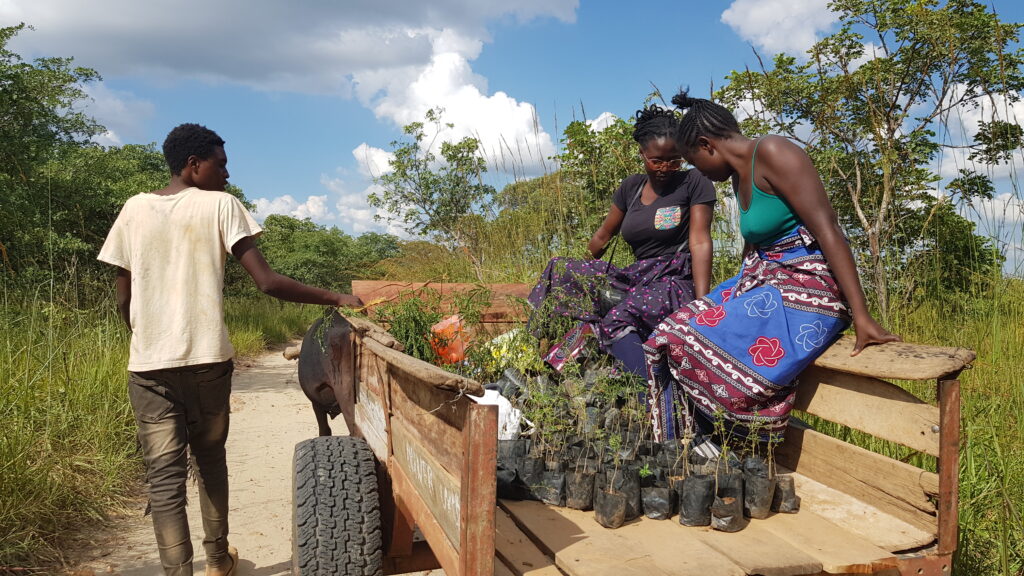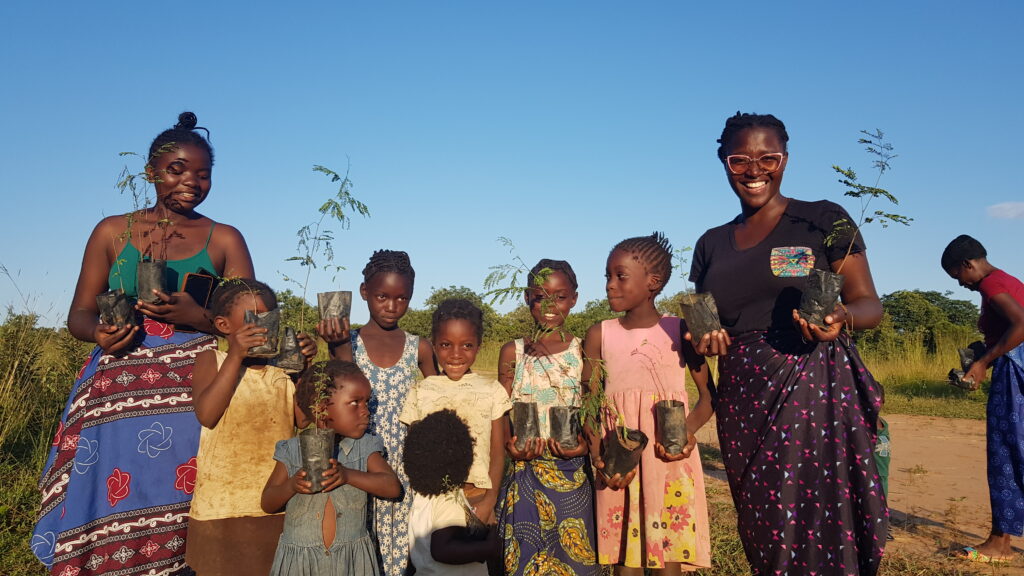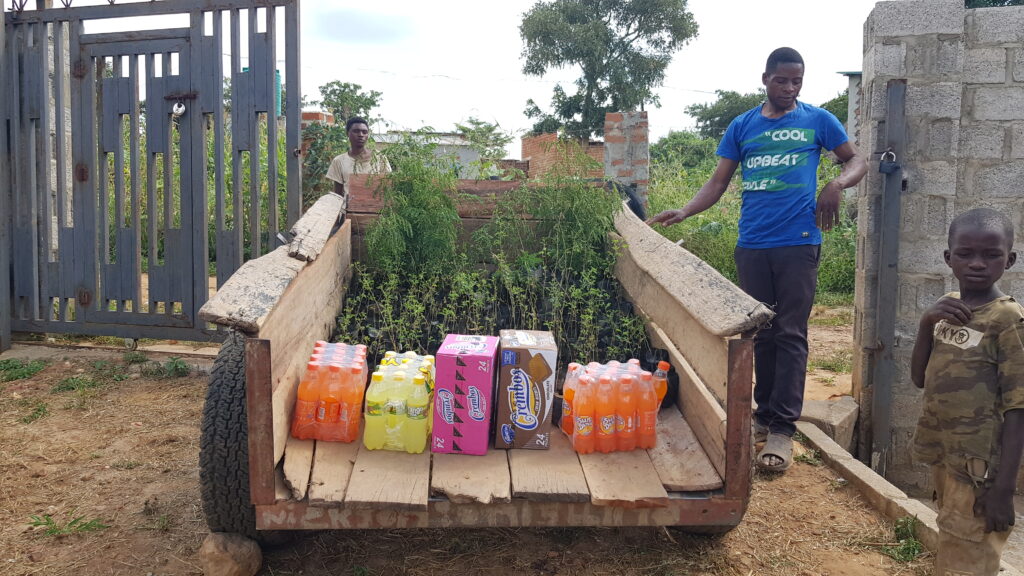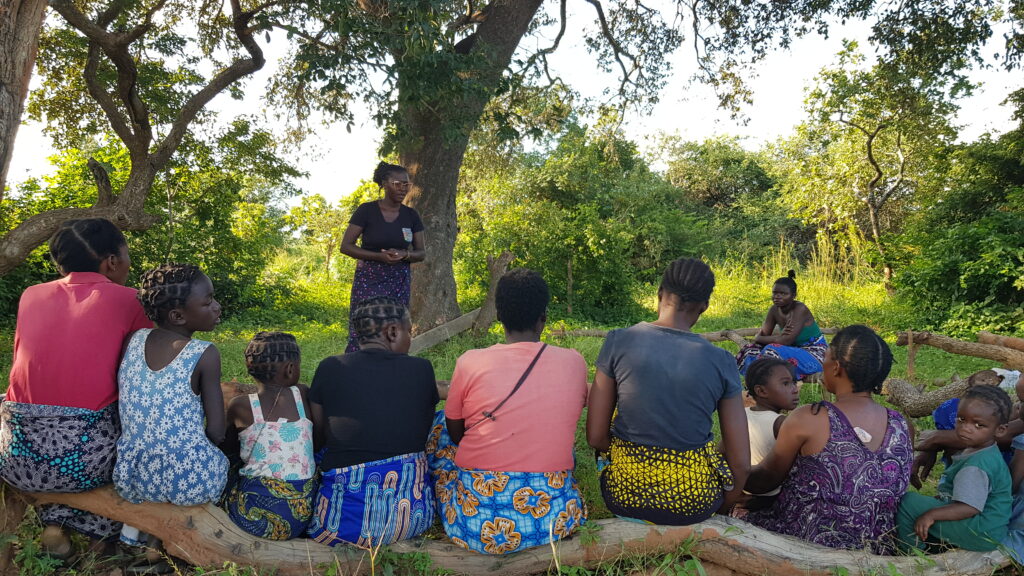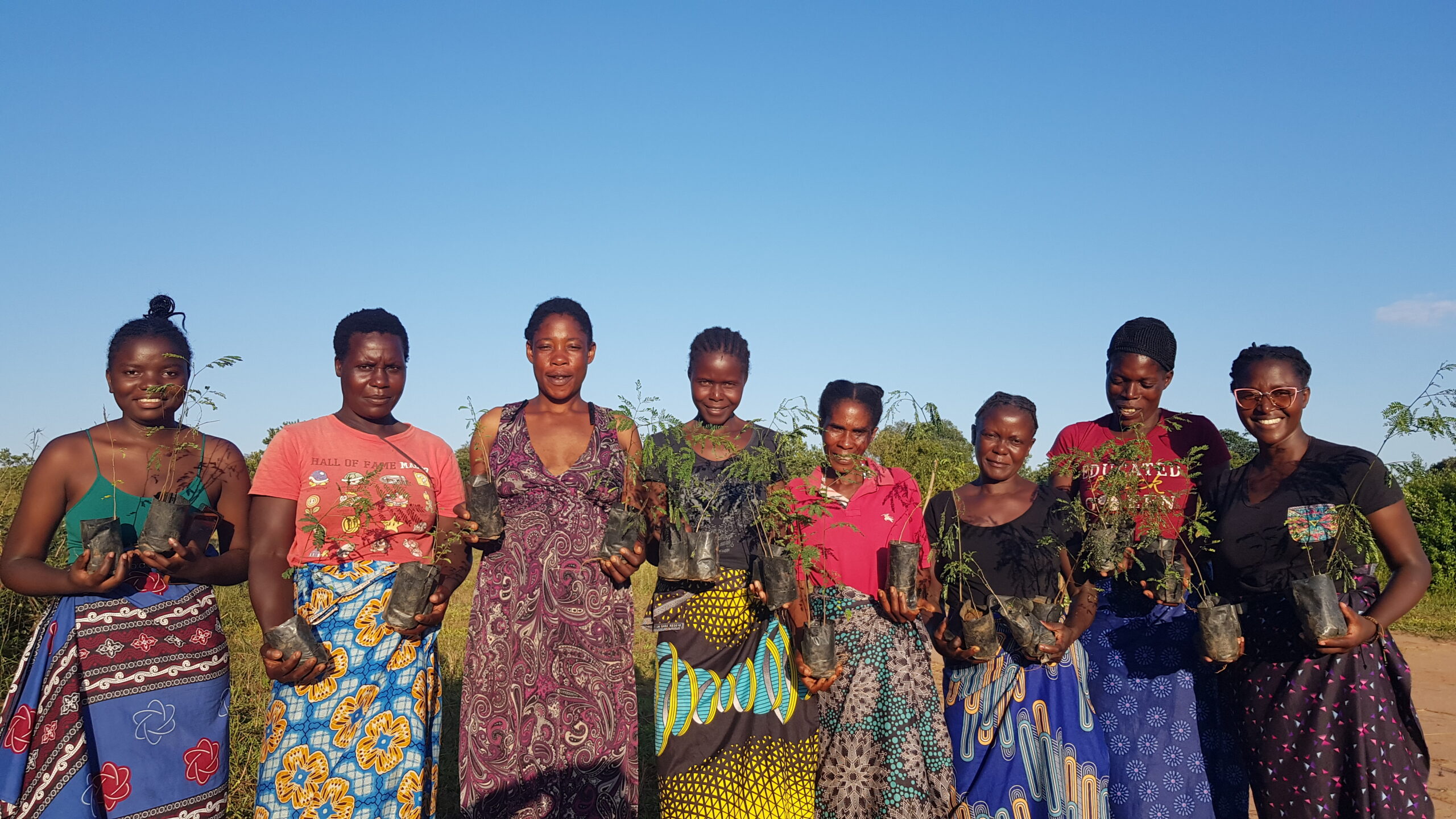During our recent visit to Chisengu village in Chongwe wher we planted 500 trees, we made a shocking discovery – villagers are selling mature musangu trees (Faidherbia albida), some as old as 30 years, for just K300 to illegal timber traders.
These traders approach farmers with cash offers to cut down the valuable trees in their maize fields, creating a double crisis. First, it accelerates deforestation in the area. Second, it reduces maize crop yields since musangu trees naturally fix nitrogen in the soil, boosting fertility and supporting better harvests. Even more troubling are rumors that some village headmen may be involved in this illegal trade, allegedly directing loggers to target trees belonging to villagers who can’t speak out against local leadership.
Chisengu is one of three villages where we’ve been conducting climate awareness programs, alongside Chikwela and Kapuka. During this visit, we distributed 500 musangu seedlings for agroforestry and reforestation. While attendance was lower than hoped, with just 10 women participating, the workshop proved valuable.
These women actively engaged, asking thoughtful questions and contributing to discussions about the environmental and agricultural impacts of cutting down musangu trees. We emphasized the importance of reporting illegal tree cutting to authorities and spreading awareness about forest conservation within their community.
This effort is part of our Chongwe Reforestation Initiative, a comprehensive pilot project addressing multiple challenges. First, we’re educating communities about environmental protection and building their capacity for climate action.
Second, we’re actively combating deforestation by collecting musangu seeds and nurturing seedlings for replanting during the rainy season in areas where trees have been lost.
Third, recognizing the critical water shortages exacerbated by the 2022-23 drought, we’re drilling boreholes that serve dual purposes – providing clean drinking water for villagers while also functioning as nurseries where seedlings can be watered and cared for.
Our journey to Chisengu itself reflected the realities of rural life – we transported all the seedlings, along with drinks and snacks for participants, using a traditional oxcart.
After the workshop, we shared these refreshments with the villagers, creating a moment of community bonding. While the illegal tree cutting we witnessed was disheartening, we remain committed to this important work.
Through continued education, sustainable solutions, and community engagement, we believe we can help reverse the damage and protect these vital natural resources for future generations. Every seedling planted and every villager educated represents hope for a greener, more sustainable future in Chongwe.
